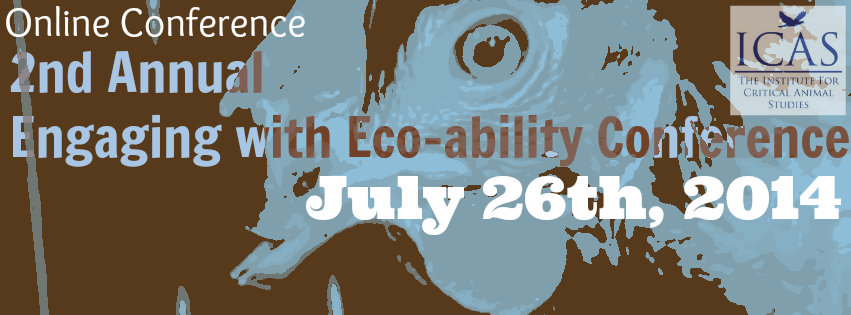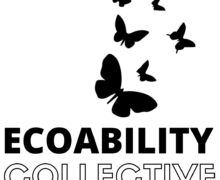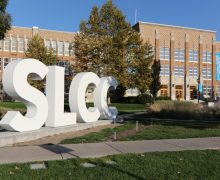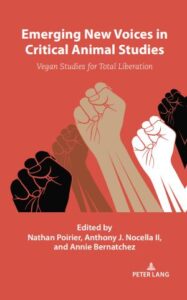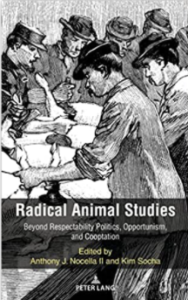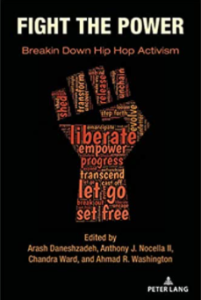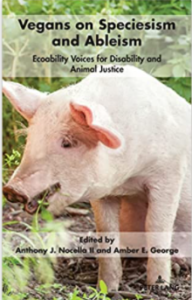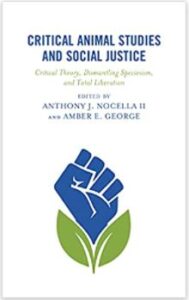2nd Annual Engaging with Eco-Ability Conference Presentations and Schedule
“Engaging with Eco-ability Conference”
Disability, Animals, and Ecological Justice
2nd Annual Conference
July 26th, 2014
1:00pm to 5:00pm Eastern USA Time
#ecoability
#criticalanimalstudies
***Eco-ability is a movement and theory grounded in animal liberation/critical animal studies, disability rights/disability studies, and ecological justice/environmental studies.
Join the Conference here: https://
__________________________
SCHEDULE
(each presenter speaks for 15 to 20 minutes)
1:00pm Tina Cubberley
ABSTRACT: my presentation, entitled ‘the spectrum of perceptions and cure oppression’ has both autobiographical and theoretical elements. It is essentially an intersectional exploration of the struggle against ableism, the vegan anarchist values inherent in and indispensable to that struggle and the politics of normality. It takes the form of a non-linear narrative describing some of the challenges I have faced, on my journey to empowerment and self-belief, as both a person branded and stigmatized as ‘disabled’ and as a justice activist who came to the movement through my passion for feminist values and animal liberation. I relate my own experiences of oppression to the obstacles confronting us as activists for a fairer world, by means of juxtaposing pieces of my journal entries from the time I was confined to a mental hospital with my more resent writing on my developing understanding of intersectionality. I will refer to my beliefs as an anarchist, radical feminist and anit-speciesist campaigner in order to explore and illustrate my theory of ‘ cure oppression,’ and will also use some of my zine writing and design work to explain my thinking about the spectrum of perceptions. an understanding of this last, I argue, is particularly vital in our struggle against the effects of internalized oppression and the devaluation of our subjective experiences of the world by mainstream society. related issues which i hope to touch on in linking and exploring these themes include – healing and self care as forms of resistance. Audre Lorde’s concept of the mythical norm. Cure oppression as it relates to speciesism and finally the threat to socially constructed and disempowering movement boundaries posed by an intersectional understanding of veganism as a movement that embraces us all. In summary – my presentation is about my intersectional vision of justice, explored through various forms of self expression and communication originating from DIY culture.
BIO: I am an anarchist, radical feminist and straight edge animal rights and justice activist. I am also diagnosed with asperger’s syndrome and have experience of the mental health industry. I have spent some time in anarchist organising, volunteering with a local chapter of food not bombs, and also working on the committee of a student animal liberation group which I co-founded while i was in college. I have recently been giving a series of workshops with the vegan information project , an intersectional justice advocacy group based in Dublin Ireland. Among the topics I gave talks and facilitated workshops on were – an anarcha-feminist approach to rights-based animal liberation theory, an intersectional understanding of the anarchist ahd animal rights movements as one and the same the need for the development of a strong autonomous independent media network among activists and oppressed communities and the theory and practice of direct action and civil disobedience. Other projects I am currently working on include – writing an distributing zines on social justice issues (I have previously written a poetry collection entitled anti-speciesist action) and training in women’s self defense, a topic on which i have also given a practical workshop and skill-share .
1:20pm Q and A
________
“Lived Objects: Prosthetics, Agency and the Question of Object Oriented Ontology within an Ecological Disability Studies Framework”
1:30pm Zach Richter
ABSTRACT: As previous areas of criticism have become outmoded by serially unsatisfied questions concerning being and knowledge, the area of study known as Object Oriented Ontology has jumped to the forefront of cultural studies and philosophy conversations. While scholars such as Kate Barad already take note of ableism and anthropocentrism as formative reasons why abandoning the human as a site of inquiry may turn out to be a viable theoretical move, little has been done to interrogate how the objects which are now granted a form of agency and entanglement within animal and disabled subjectivities become sites of contestation between normalizing and dissident social values. In an attempt to better integrate the object within feminist discourses that prioritize the personal, this essay will consider objects both as living and lived—granting them an existence both figured into the entanglements of humanness and animality as well as pursuing their independent meaning-making trajectories. Phenomenology has long considered the importance of horizons in defining boundaries and encircling aspects of consciousness. The full application of Barad’s theory of entanglement requires thinking boundaries as dotted lines that release bodies and phenomena on the periphery as well as binding them to larger apparatuses. This overlap embodies the paradoxical relation that one hopes to put forward through the concept of the lived object—an object simultaneously prosthetic and agential.
BIO: Zach Richter is a community organizer, debate coach and artist studying in the University of Illinois at Chicago’s Disability and Human Development program. He has presented at national conferences including the Queer Places, Practices and Lives Symposium, the Society for Disability Studies, the Institute for Critical Animal Studies and the Pop Culture/ American Culture Association. A second-year graduate student, Zach already has a significant publication history, including one article in the Journal for Critical Animal Studies and chapters forthcoming in three disability studies anthologies. He manages www.didistutter.org, a disability culture website dedicated to dysfluency activism, and blogs about radical disability and queer politics at http://
2:50pm Q and A
________
“Civilization Will Stunt Your Growth: Defending Anarcho-Primitivism from Accusations of Ableism”
2:00pm Ian E. Smith
ABSTRACT: Anarcho-primitivism is frequently described by its critics as being incapable of providing sufficient accommodation for people with disabilities; it purportedly “requires a non-disabled body for its ideal society” and is thus viewed as an inherently ableist position. I will argue, on the contrary, that anarcho-primitivism advocates a society that would provide the fullest flourishing for people with a diverse range of abilities and that civilization itself is a disablizing force. It is civilization that effectively stunts our growth and renders many of us disabled; it is civilization that narrows the range of our senses, shrinks our world and our horizons, and denies us the opportunity to experience the full use of our bodies. The standardization of mass society necessarily defines an increasing number of people as “disabled” if they do not fit a narrowly prescribed form. The “normal range” of human variation is being shrunk and those outside of this range are stigmatized, pathologized, medicated, and manipulated. The civilized solution to living with people of different abilities is to treat large segments of people like broken clocks in need of new parts or regular servicing. This approach is in accordance with the standard operating procedure of civilization to understand every human problem as a technical problem; it allows us to discharge our responsibility to care for those around us by developing new products, offering new services, and building new infrastructure. The need for relationship is erased. In this way, civilization allows us not to care for others who may need assistance, which is to say, it allows others not to care for us when we need assistance. The civilized solution to accommodating people with a diverse range of abilities is worse than the perceived problem. The solution is runaway technological escalation and all of the consequences that come with that.
BIO: Ian E. Smith currently lives in Eugene, Oregon. His academic background is in philosophy having graduated with a Master’s degree from the University of Connecticut in 2006. His writing has appeared in venues such as Philosophy Now, the Journal for Critical Animal Studies, and the recently released volume Animals and War: Confronting the Military-Animal Industrial Complex. Ian blogs at uncivilizedanimals.wordpre
2:20pm Q and A
________
“What About The Plants: Integrating Ecology into Eco-ability”
2:30pm Kim Socha
ABSTRACT: As a contributor to the first book on eco-ability and co-editor of a special issue on eco-ability for the Journal for Critical Animal Studies, I have noticed the difficulty scholars appear to have in integrating the environment proper (what I call “green nature”) into their work. The correlations between human and nonhuman animals with disabilities seem a more natural fit for some, relegating plants, trees, mountains, oceans, etc. to the margins of the theoretical perspective. In this presentation, I will offer ideas as to why this oversight exists and how we as eco-ability scholars can begin to look at “green nature” as an entity under domination as much as are oppressed animal organisms. Therein, I also address an issue that should be of growing interest to animal and environmental activists: the question of plants. Most activists have heard the tongue-in-cheek question about plant sentience within their animal advocacy. But while it is tempting dismiss this red herring question out of hand, I believe we need to give it more serious thought and develop more sophisticated responses to the query, although it is most often asked with flippant indifference. Within those responses are avenues for integrating the seemingly non-sentient environment into a holistic eco-ability theory that benefits both animals and the planet.
BIO: Kim Socha, Ph.D, is author of Women, Destruction, and the Avant-Garde: A Paradigm for Animal Liberation and is a contributing editor to Confronting Animal Exploitation: Grassroots Essays on Liberation and Veganism and Defining Critical Animal Studies: A Social Justice Approach for Liberation. She is currently working on a monograph entitled Animal Liberation and Atheism: Dismantling the Procrustean Bed. Kim is a professor of English and an advocate for animal liberation and social justice at the Animal Rights Coalition and the Minnesota branch of the National Organization for the Reform of Marijuana Laws.
2:50pm Q and A
________
“A Movement of Oppressors: An Eco-ability Perspective on Narcissism and the Savior Mentality in Animal Advocacy”
3:00pm Anthony J. Nocella II
ABSTRACT: This intersectional presentation arises from an anti-racist, disability studies, and critical animal studies perspective to problematize the animal liberation movement as one comprised wholly of animal oppressors who ironically act to end the oppression of nonhuman animals. Within the history of social justice movements, this paradoxical situation has only occurred once before, in the environmental movement, but even that movement involved concerned with human health and living standards; in other words, it wasn’t fully active for another species. This presentation will look at two consequences of oppressors advocating for the oppressed: rampant narcissism and proliferation of the savior mentality. Narcissism and the savior mentality manifest via a variety of tactics and strategies which reinforce human supremacy. For example, the animal liberation/rights movement has more public personalities and “celebrities” than most other social justice causes. This is a dangerous paradigm that pulls attention away from nonhuman animal suffering. Before being an ally or claiming solidarity with the oppressed, individuals and movements must become aware of the actions and mentalities that perpetuate oppression, domination, and supremacy. Part self-reflection, part critical analysis, this presentation will not merely point fingers at animal advocates in general; rather, I will explain how I have also promoted narcissism and savior mentality within the movement and offer strategies to subvert these tendencies.
BIO: Anthony J. Nocella II, Ph.D., is Senior Fellow of the Dispute Resolution Institute at the Hamline Law School. Nocella received his doctorate in Social Science from Syracuse University’s Maxwell School for Citizenship and Public Affairs. He has published more than fifty scholarly articles or book chapters; co-founded eco-ability and critical animal studies; co-founded and is Director of the Institute for Critical Animal Studies; is the editor of the Peace Studies Journal; and has published more than fifteen books. His areas of interest include justice studies, disability studies, Hip Hop, transformative justice, and peace and conflict studies. His website is www.anthonynocella.org.
3:20pm Q and A
________
“Animal Advocates Being Allies and in Solidarity with those with Disabilities”
3:30pm Joe Leeson-Schatz
ABSTRACT:
BIO: Joe Leeson-Schatz is a Professor of English and Feminist Evolutionary Studies at Binghamton University where he also serves as the Director of the Speech and Debate Team, which was ranked 1st in the nation in 2008. He has published essays on technology and apocalypse, environmental securitization, disability studies, and the influence of science-fiction on reality.
3:50pm Q and A
“Animal Prostheses as a Site of Transspecies Intimacy: Queering Time and Scale”
4:00pm Lauren O’Laughlin
ABSTRACT: The recent attention on eco-ability within critical animal studies has promising implications for our work as justice advocates. Although linking disability and animality has proven to be fruitful, there is not yet much work on the specific intimacies produced through the development and maintenance of prostheses in animals. My paper posits that prosthetic limbs for typically commodified animals constitute a unique language of transspecies intimacy, paying particular attention to how they create understandings of shared precarity and grievability. This project argues that caring for farm animals with disabilities can queer the way we think about time and scale in useful ways. Caring for farm animals with prostheses can create new articulations of non-work time for otherwise commodified animals. Moreover, the need for ongoing surveillance of animals and their prostheses for signs of discomfort acts as a kind of fermata, extending the connection between animals and their caretakers and signifying a commitment on the part of humans to the animals’ wellbeing. Simultaneously, transspecies intimacies can queer scale: by focusing on the small-scale of the individual, caretakers recognize animals’ abilities to indicate their consent for a prosthesis, rather than relying on a top-down approach of treatment. In the process of building transspecies intimacy, caretakers can also re-scale the issue when they recognize that the mistreatment of animals with disabilities, from birth or developed as a result of industrial agriculture, are not merely individual instances of injustice, but part of a system of violence. In order to foster positive queer intimacies between humans and nonhuman animals, these coexisting subversions of time and scale must be analyzed. Consequently, this paper unpacks the unique care ethics emerging from transspecies disability work.
BIO: Lauren O’Laughlin is a doctoral student in the Gender, Women, and Sexuality Studies Department at the University of Washington in Seattle. As a long-time animal justice advocate and a queer feminist, their research follows threads of posthumanism and ecofeminism to look at how both human and non-human animals are constituted as laboring subjects in meat production in the U.S. Lauren specifically focuses on beef production and the way that race and gender are discursively reinforced through the production and consumption process. At the core, they examine how we might queer the concept of the non-human animal as an ontological other.
4:20pm Q and A
________
4:30pm Gregor Wolbring
ABSTRACT: Ability privilege describes the advantages enjoyed by those who exhibit certain abilities and the unwillingness of these individuals to relinquish the advantage linked to the abilities especially with the reason that these are earned or birth given (natural) abilities. To link it back to disabled people as the originator of the term ableism. The concept of ableism was developed to question the ability privileges (i.e. ability to work, to gain education, to be part of society, to have an identity, to be seen as citizen) that come with a species-typical body (although they did not use the term ability privilege) [9]. Disablism conceptualized within this meaning of ability privilege suggests that people with expected, normative body abilities are not willing to give up their ability privileges[9]. The cultural phenomenon of Ability privileges, however, can be employed beyond the social group of disabled people and their encounter with the ‘ability normative’ body. Ability privileges can play themselves out between traditionally defined social groups (e.g. race, gender, class). However at the same time social groups are also formed based on ability privileges whereby the social group is defined by whether its members have or don’t have a given ability (the ability-have and the ability-non-have social groups) [9]. Ability privilege also influences how one relates to nature and to animals and shapes one identity [9]. Which ability privilege is classified as earned or unearned constantly changes and is not only culturally constructed, but exhibition and acceptance or rejection of different ability privileges also are one aspect that shapes a culture. These ability expectations lead to the exhibition of various forms of ability privileges [3, 10] leading to various forms of disablement.
BIO: Gregor Wolbring is an Associate Professor; University of Calgary, Faculty of Medicine, Community Health Sciences, Community Rehabilitation and Disability Studies; Fellow: Institute for Science, Policy and Society, University of Ottawa, Canada; Adjunct Assistant Professor, Faculty of Critical Disability Studies, York University Canada; Part Time Professor Faculty of Law, University of Ottawa, Canada and Founding Member and Affiliated Scholar, Center for Nanotechnology and Society at Arizona State University, USA. He is the former President of the Canadian Disability Studies Association.
4:50pm Q and A
5:00pm End of Conference
__________________________
CONTACT: Joe – debate@binghamton.edu or 607-765-3659
__________________________
ASSISTANCE
So the program we’ll be using is called Anymeeting (http://anymeeting.com/). The web-link, where everyone will sign into the chatroom, will be posted on the event page this week.
Anymeeting is an interactive platform, where everyone in attendance can watch & listen to the presentations and then discuss them afterwards. If you have more questions about how this online event will work, please comment or message!
Here are some instructions for attendees:
1. Click on this link to check that your computer and internet connection are ready to use AnyMeeting:
https://
2. On the day of the conference, ideally you will want to:
a) be in a quiet space
b) speak slowly (if using your microphone during discussion) and
c) use headphones if you have access to some (unless of course you are planning to watch with one or more friends!).
3. Please, please note your own time zone if you are not in Eastern Standard Time:
http://
4. For any of your additional questions or concerns, check out this link to see the Anymeeting guide for first-time attendees: http://
As well, here is a link for attendee FAQ when using Anymeeting: http://
__________________________

